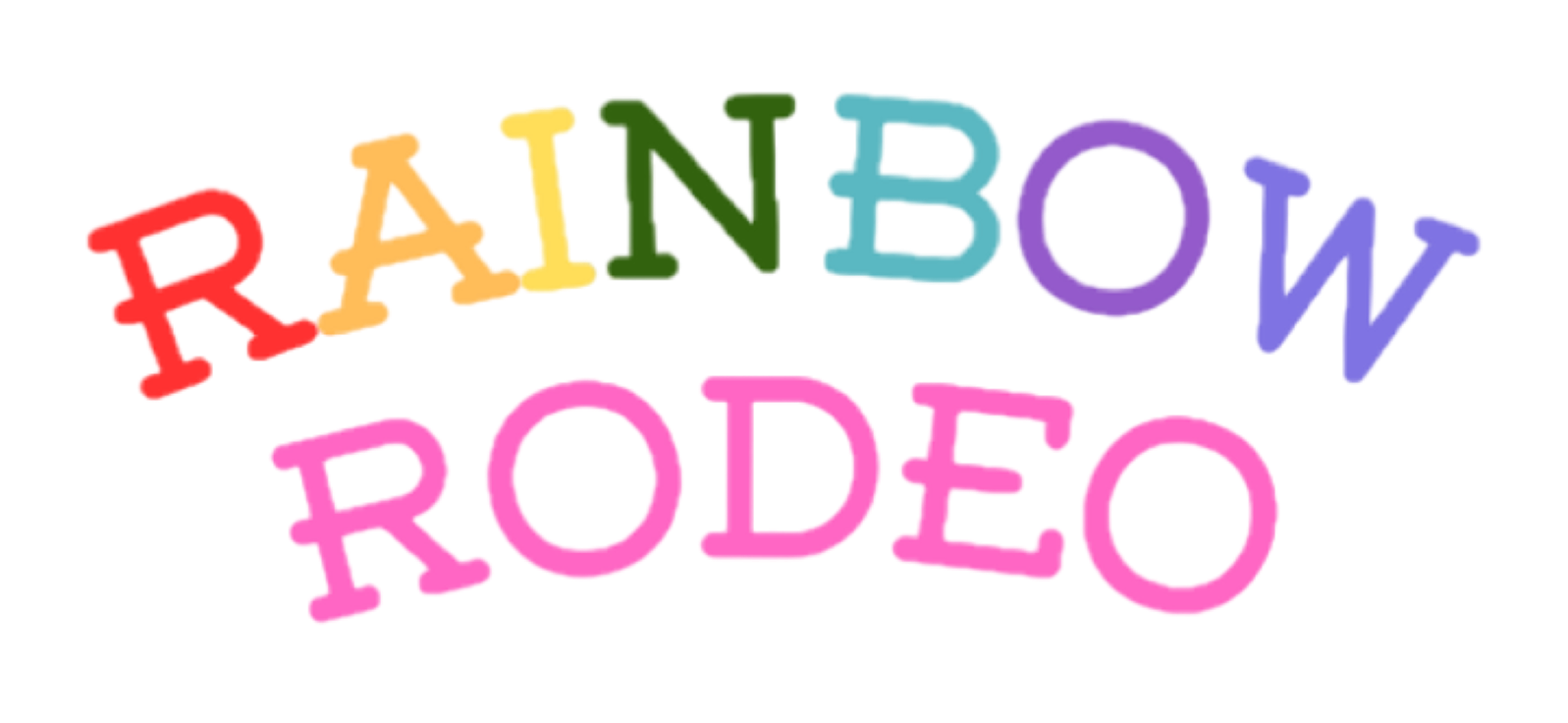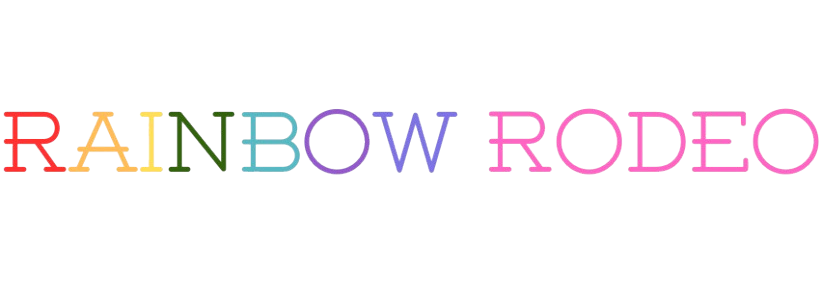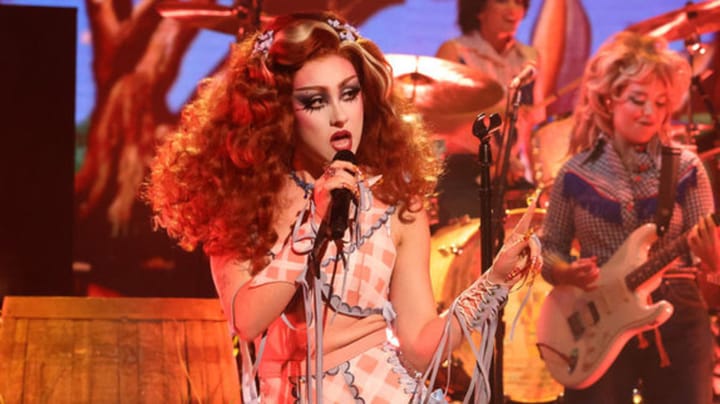INTERVIEW: Mercy Bell Finds Herself in Chicago's "Leather Daddies"

Mercy Bell’s got a big voice and a talent for writing arresting ballads. It’s been a while since we heard from her, but she’s certainly been busy — working on a musical about the Chicago leather daddy scene of the 1950s and 1960s, as one does. Bell released the EP Leather Daddies came out on August, with four songs from the musical on it. Leather Daddies is based on the book Leatherman by Tracy Baim and Owen Keehnen and details the wild lives and romance of Dom “Etienne” Orejudos and Chuck Renslow, who opened the first leather bar in the US.
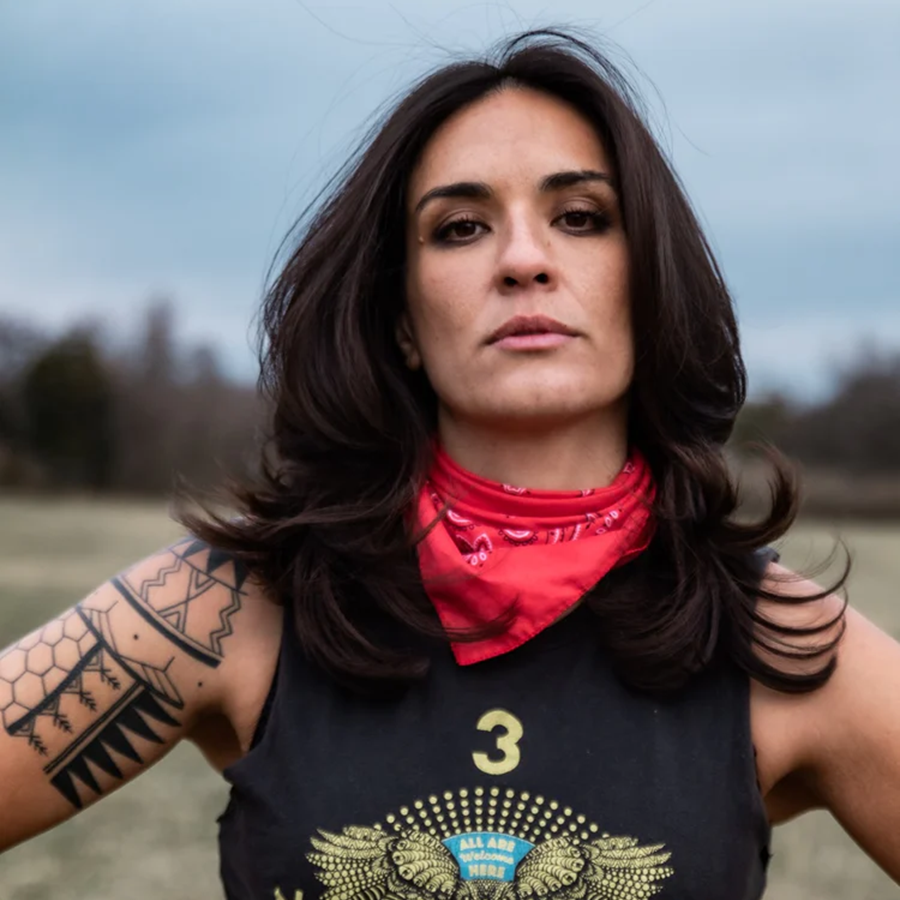
In this conversation, Bell explains how musicals are born and her collaboration with Scott Bradley, who is writing the books and co-writing the lyrics. We began the interview by catching up on what Bell has been up to since her last album, Golden Child. When we last spoke, Bell had been bartending and working towards a spin instructor certification. Since then, she’s found a 9 – 5 in insurance sales and found that this has worked well for her. Read on to learn more about the birth of the leather scene in Chicago, what Bell has learned about Filipino-American history, and how she’s channeled her inner leather daddy.
Mercy: I’m happy to talk about [my 9 – 5.] It’s really helped me co-write, which I’ve been finding is really lovely, that you get to write songs with all these other people, and Nashville has so many cool people. Obviously, not just Nashville. I’ve been co-writing a musical with somebody who’s based out of like Iowa and Chicago.
Not having to worry about how my bills are paid gives me more support. When I log off from my job, I’ll spend the rest of the evening writing some songs or, doing something music-related. I’m probably paraphrasing the writer Elizabeth Gilbert when she said that if you’re creative, she always enjoyed having like a “real job” and doing her art on the side ’cause it gave her things to write about.
It’s better than being stressed out about how I’m going to make enough money and having resentment towards making music.
Rainbow Rodeo: So how did Leather Daddies come together?
Scott Bradley, who is the co-writer of the music and lyrics, is also writing the book. He’s been working on this project for years. He’s a musical theater professor at University of Iowa and he lived in Chicago for a very long time.
Scott was approached by two queer authors named Tracy Baim and Owen Keehnen, who wrote a biography of Chuck Renlsow called Leatherman.
Chuck Renslow was a 1950s kind of real estate mogul. He was not a rich man, but he was a hustler. And he created the first bathhouses and gyms for gay men in Chicago, the first leather bar in the United States, and he would create these “physique bodybuilder” magazines but they were really ways for gay men to connect in the 1950s. He was an icon in Chicago. So Tracy and Owen wrote a book about him with his permission. They were the chosen writers of his official biography. When Chuck passed away a few years ago and Tracy and Owen wanted it to be turned into a play.
Scott Bradley who had done a couple of successful shows in Chicago and an auto-biographical show. He started to work turning Leatherman into a play, but he realized that the characters, the scope of history and stories that are told in it, are just way too much for a play. He said it could either be a musical or a TV series. He also wanted to tell the story of Chuck’s longtime lover and partner and life partner, Domingo Ordos, who is Filipino American. He was the artist known as Etienne, who was a contemporary of Tom of Finland. You can tell that they both were fulfilling the same niche and audience in very different styles. Etienne has so much more humor than Tom of Finland.
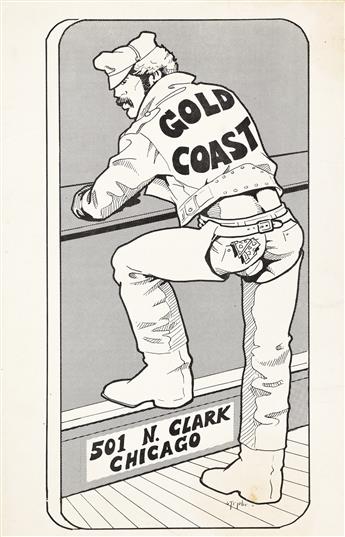
Domingo is also a really renowned ballet choreographer and ballet dancer, and he also became a business partner on all these projects. He ultimately married another man, but they were business and life partners for a very long time. Scott wanted to write a show from Domingo’s point of view because Chuck talks about himself all the time and he’s just another white man, but Scott really wanted to tell the story of Domingo Ordos.
He wanted to find somebody who was Filipino-American to help create this character and he was a fan of mine. He didn’t know I was Filipino until he read one of my interviews. One day, he sent me an email and he was basically like, “I know this is a lot.” And he sent me like five paragraphs explaining the entire project. I was like, “absolutely.” I’ve always wanted to write a musical. I’ve been obsessed with musicals since I was a little kid. I was a theater kid in late high school and early college.
We started to work on it at the end of 2021, early 2022. We’ve had several workshops and each time we do a workshop, we write a bunch of songs. We work on t the scenes and how the characters are formed.
Two products have come out of it so far. The first product is this EP that we released here in Nashville with Alex Caress of Little Bandit produced it and it has a pretty great who’s who of Nashville talent. We have T. Minton on drums. We have Ellen Angelico on the guitar. We have Mike Maimon singing on it. We have Carrie Schneider on bass. Aaron Lee Tasjan sings a song. Joshua Headley sings a song. And those are just four songs, but there’s actually like eight or nine songs.
They came to life at this workshop in Chicago in June, which was an equity Actor’s Equity workshop at About Face Theater, a queer theater. It was amazing to watch those actors do their thing and so humbling.
Jess McCleod, an Asian American director, directed the workshop and we had Cory Danielson do the musical direction.
I can hear the influence of musicals in your singing. Is that what brought you to New York?
I didn’t necessarily wanna be auditioning for theater in New York, but I love New York because I would go to see Broadway shows as a teenager.
I went to college at Marymount Manhattan for like semester. But I got so sick I had to go home and then my parents were like, ‘just kidding, we don’t have enough money to send you there.’ But I went to Marymount Manhattan ’cause it was a theater school and I wanted to do that.
Your music is very personal and confessional. How it was to write a musical from these characters’ perspectives?
I have definitely mined my experience on a lot of these songs., Like “When the Light Hits Right,” I really wrote that about my girlfriend. They’re still trying to figure out where this love song goes. Is it Act One? Act Two? They don’t know yet. But I wrote it for the show, thinking of her while I wrote it, you know?
There’s always a prompt for these songs. We’ll say, “this character needs this song.” When it came to some of the other stuff like “Sailor Song,” we went really deep into a great book about that character called Secret Historian. We were just like, “write a song about this guy and he’s seducing some sailors.” I was allowed to just have fun with that.
I wrote a couple of the lyrics, but Scott is doing the heft of like the humor and stuff ’cause he’s hilarious. I’m not that funny. I was like, “I’m gonna write my Alan Cummings song.”
For some of the songs, it’s been more of a an experiment. ’cause Scott will be like, “we need like surfer song for Groove Me.” I tapped into my love of the Beach Boys and tried to write a surf rock song. I just did my best to deliver.
Rachel: Did you feel like you had to do a little extra research because you were writing from the perspective of like queer men? I ask because the culture or expectations around sexuality are different than for WSW.
Mercy: I’m gonna be real. I called upon all the stories that all of my queer male friends have told me over the years. I used to go to the YMCA and they would just like be like, “Hey, I have to go like, suck this guy’s dick in the steam room.” And I’d be like, “okay, bye.”
I have cried on their shoulders and they have cried on my shoulders and I just took all of all of their stories that they gave me and I put ’em into this song. So this is my ode to all my friends.
But also Leatherman and Secret Historian…if anybody says “well leather daddies weren’t gay in my day” I’m like, “motherfucker, they were gay in your day. They were literally off having orgies in cornfields and old abandoned churches in the fifties and sixties.”
As you started working on the project, you wrote a lot of really beautiful things on social media about connecting to Domingo as part of your own Filipino identity. How has learning more about him changed your self-concept?
It’s so important how representation matters. I had no idea there was such amazing Filipino-Chicago history. I also didn’t know anything about Chicago. I’m sad to say this is my first time I’ve really spent time there. And it’s amazing that he was able to be openly gay, proud of being Filipino and be a ballet dancer and a Leatherman at the same time, and seeing how he was able to be all these things made me feel a lot better about dealing with my mental health.
Being able to see him embrace all these aspects of himself in a time when it was literally illegal to be queer — and it was also illegal to be not-white in a lot of places as well — that level of bravery made me, especially during this time when I was getting a diagnosis, it made me just be prouder just to be me.
Being immersed in his life has really made me feel like I can do it all. Not in power-of-positive thinking way, but literally this man did all sorts of crazy shit. And so can I!
I also learned some really interesting things of about Filipino-American history. His dad was a on a national Filipino touring yo-yo team. I recalled “oh yeah, yo-yos are a Filipino invention.” They were a Filipino weapon for hunting.
It made me think of my great-grandfather, who was Filipino and he studied in Golden, Colorado at the School of Mines, which then he ultimately brought back the Philippines and dug a lot of bomb shelters basically for people in Baguio, which is where my family lived for a long time, and saved a lot of people’s lives.
It also made him an enemy of the state of the Japanese. But that’s another story about my great-grandfather.
What’s next with Leather Daddies?
It can go one of two ways that we can either find a theatrical workshop to literally pay us to develop Act Two and finish the rest of the show. The second would be is if we got a producer who wants to develop it and finish the show. Apparently this is really normal for theater. Theater takes a long time sometimes.
It sounds like you’re very immersed in the musical and excited about it, but do you have any plans to record some solo work?
Right now I’m writing songs for a new album. But that’s a year and a half out probably. We’re writing some songs and seeing which direction it goes. With one friend, I’m writing some pop stuff, and then with other friends I’m doing good old-fashioned folksy ballads.
Learn more about Leather Daddies here.
Mercy Bell — Official, Bandcamp, Facebook, Instagram, Twitter
